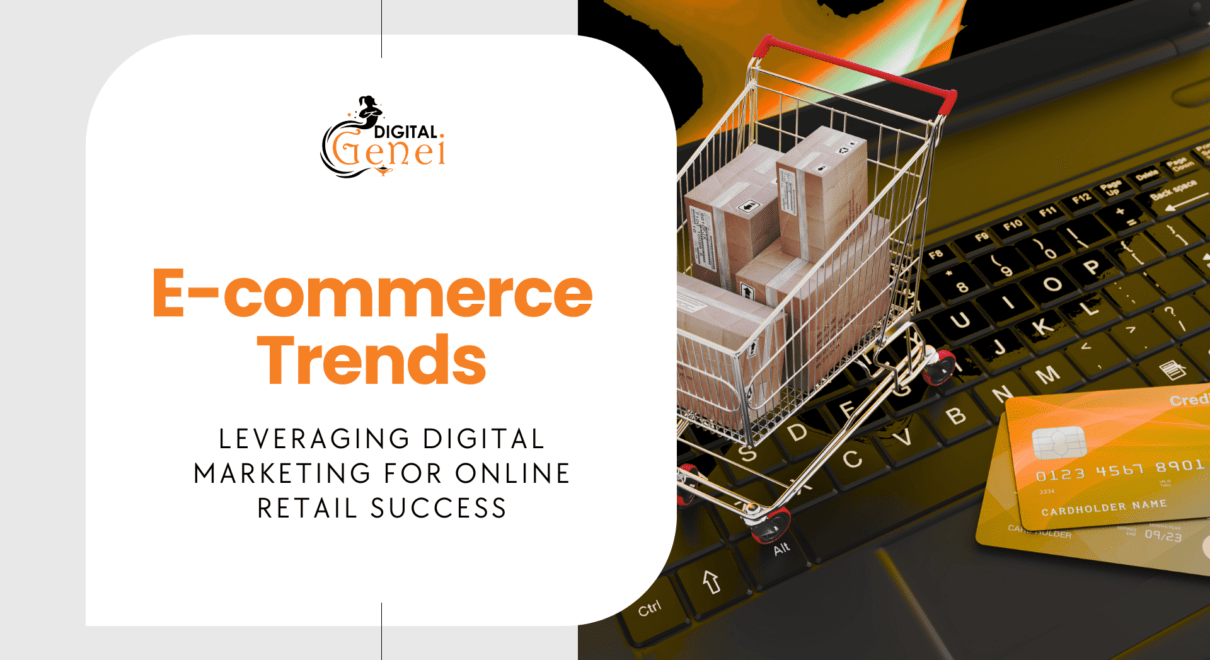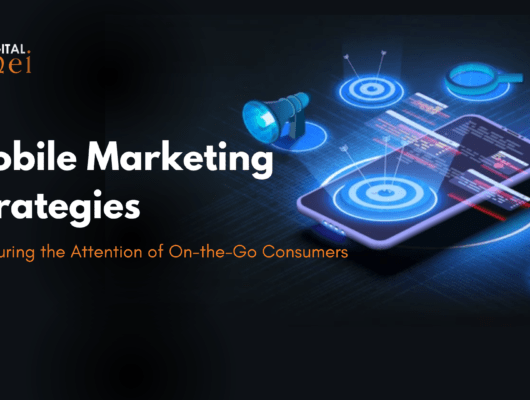E-commerce Trends: Leveraging Digital Marketing for Online Retail Success
How can online retailers stay ahead in a rapidly evolving digital landscape? The answer lies in understanding and leveraging the latest e-commerce trends through effective digital marketing strategies. By staying informed and adaptable, e-commerce businesses can enhance their online presence, drive more traffic, and increase sales.
The Digital Transformation of Retail
The shift from traditional brick-and-mortar stores to online retail has accelerated in recent years, driven by advancements in technology and changing consumer behaviors. As Jeff Bezos, founder of Amazon, famously stated, “We see our customers as invited guests to a party, and we are the hosts.” This mindset has helped e-commerce giants thrive by focusing on customer-centric strategies.
Key E-commerce Trends
1. Mobile Commerce (M-commerce)
Mobile commerce continues to grow as more consumers use smartphones and tablets for shopping. According to Statista, mobile commerce is expected to account for nearly 73% of total e-commerce sales by 2021. Optimizing your online store for mobile devices is crucial. This includes having a responsive design, fast loading times, and easy navigation.
2. Social Commerce
Social media platforms like Instagram, Facebook, and Pinterest are increasingly integrating shopping features, allowing users to purchase products directly from these platforms. As Mark Zuckerberg, CEO of Facebook, noted, “Our goal is to connect everyone in the world.” Leveraging social commerce can enhance visibility and drive sales by reaching consumers where they spend a significant amount of their time.
3. Personalization and AI
Personalization has become a cornerstone of successful e-commerce. AI-powered tools analyze user data to deliver personalized shopping experiences, from product recommendations to tailored marketing messages. As Sundar Pichai, CEO of Google, puts it, “AI is probably the most important thing humanity has ever worked on.” By harnessing AI, businesses can create more relevant and engaging customer experiences.
4. Voice Commerce
Voice-activated devices like Amazon’s Alexa and Google Home are changing the way consumers shop. Voice commerce is on the rise, with more consumers using these devices to search for products and make purchases. Ensuring your e-commerce site is optimized for voice search can help capture this growing market segment.
5. Augmented Reality (AR)
Augmented Reality is transforming online shopping by allowing customers to visualize products in their real-world environments. Brands like IKEA and Sephora have successfully implemented AR to enhance the shopping experience. According to Tim Cook, CEO of Apple, “AR is the next big thing, and it will pervade our entire lives.” Integrating AR can reduce the hesitation associated with online purchases by providing a more immersive experience.

Effective Digital Marketing Strategies for E-commerce
1. Search Engine Optimization (SEO)
SEO is essential for driving organic traffic to your online store. Optimize your website with relevant keywords, high-quality content, and a user-friendly interface. Focus on both on-page and off-page SEO to improve search engine rankings and visibility.
2. Content Marketing
Content marketing helps build brand authority and engage customers. Create valuable content that addresses the needs and interests of your target audience. This can include blog posts, videos, infographics, and how-to guides. As Gary Vaynerchuk, a digital marketing expert, says, “Content is king, but context is God.”
3. Email Marketing
Email marketing remains one of the most effective digital marketing channels. Personalize your email campaigns to nurture leads and retain customers. Use segmentation to send targeted messages and offers based on customer behavior and preferences.
4. Social Media Marketing
Utilize social media platforms to promote your products, engage with customers, and build a community. Run targeted ad campaigns to reach a broader audience and drive traffic to your online store. Consistent, authentic engagement on social media can significantly enhance brand loyalty.
5. Influencer Marketing
Collaborate with influencers who align with your brand values and have a strong following. Influencer marketing can boost credibility and reach, as consumers tend to trust recommendations from people they follow.
6. Pay-Per-Click (PPC) Advertising
PPC advertising, such as Google Ads, can drive immediate traffic to your website. Optimize your campaigns by targeting relevant keywords and demographics. Monitor and adjust your ads to maximize ROI.
Implementing E-commerce Trends
1. Mobile Optimization
Ensure your e-commerce site is fully optimized for mobile devices. This includes a responsive design, fast loading times, and simplified checkout processes to enhance the mobile shopping experience.
2. Leverage Social Media
Integrate shopping features on social media platforms to facilitate seamless purchases. Use social media to engage with customers, promote products, and gather feedback.
3. Embrace AI and Personalization
Implement AI tools to analyze customer data and deliver personalized experiences. Use machine learning algorithms to recommend products and tailor marketing messages.
4. Optimize for Voice Search
Adapt your SEO strategy to include voice search optimization. Focus on natural language keywords and ensure your site provides quick, concise answers to common queries.
5. Integrate Augmented Reality
Incorporate AR features to allow customers to visualize products in their real-world environments. This can enhance the shopping experience and reduce returns.

Conclusion: Thriving in the Digital Retail Landscape
By staying ahead of e-commerce trends and leveraging effective digital marketing strategies, online retailers can enhance their visibility, engage customers, and drive sales. As Steve Jobs once said, “Innovation distinguishes between a leader and a follower.” Embrace these trends and strategies to position your e-commerce business for long-term success in the digital age.





